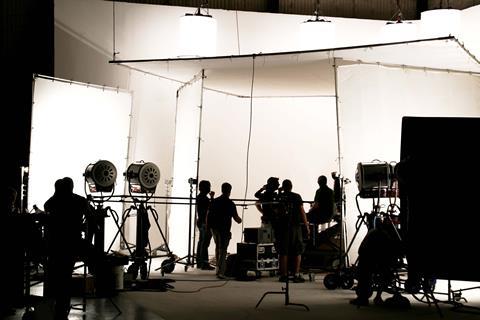Following a spate of suspected cases of fraud raised by UK independent producers, UK tax authority His Majesty’s Revenue and Customs (HMRC) is add
Following a spate of suspected cases of fraud raised by UK independent producers, UK tax authority His Majesty’s Revenue and Customs (HMRC) is adding additional security controls to minimise fraudulent claims on value-added-tax (VAT) repayments.
Last month, nine UK producers came forward via online network Producers Anonymous to say they had been impacted by recent cases of suspected VAT fraud, mostly taking place from October to December of last year, on lower-budget productions.
A person not known to the company was able to get hold of a production’s VAT number, lock the producer out of their account, and proceed to make VAT repayment claims.
Producers have subsequently struggled to get back into their VAT accounts and make legitimate claims, causing immense financial pressure on production.
VAT is a tax added to most products and services, of which the standard rate is 20% in the UK. VAT-registered businesses can claim back VAT spent on goods and services used wholly for business purposes. In the case of film production, this can include camera suppliers, crew, caterers and locations.
VAT repayments form a significant part of the cashflow for smaller independent UK productions.
Although HMRC would not comment on how widespread the issue is, Screen understands industries outside of film have also seen similar spikes.
An HMRC spokesperson said: “Like all enormous customer service organisations, our systems are constantly under attack from fraudsters. That’s why all VAT repayments are checked for a variety of risks, including fraud.
“We’re speeding up these checks by allocating extra resource to them and putting in place additional security controls to minimise fraudulent claims.”
“I cried”
UK producer Oliver Roskill of Record Player Films, whose credits include Daina O. Pusić’s Tuesday, is leading an effort to safeguard UK producers from incidents of VAT fraud, with support from Pact and the BFI. Roskill is also co-founder of The Hacking Games, a company that aims to create a generation of ethical hackers to oppose cybercrime. While Roskill himself has not be a victim of a VAT fraud, he became involved with the issue alerted to it through the Producers Anonymous group.
Last week, he organised a video call for concerned UK producers, with around 40 producers plus experts in accounting, finance technology and cybersecurity joining, as well as representatives from Pact and the BFI.
Roskill is aiming to get answers from HMRC on what safeguarding measures can prevent this from continuing to happen; how HMRC can reform how fraud is reported; and how the UK government’s Department of Culture, Media and Sport (DCMS) can support producers on the issue.
“Any producer will tell you, any accountant will tell you, any line producer will tell you, the intricacies and balance of a film, whether it be small or big, of its cash flow, is so finite – if something upends that, you can sink a film,” said Roskill.
One producer with whom Screen spoke, on the condition of anonymity, was blocked from their £1.3m-budgeted production’s account, after some suspected fraudulent attempts to access the account in October 2024. When they were eventually let back into their account, they were hit with severe hold-ups to VAT repayments.
“We were over £100,000 in debt with our post [production] house, because we were not able to pay their invoices,” said the producer. “We ran out of money, and had to loan the film production company our own cash, just to start paying bills – we had composer bills to pay, we had VFX fees to pay.”
After months of waiting, many hours on hold to HMRC, and having submitted “a mountain of paperwork”, the repayments came through.
“As the victim of some kind of fraud that blocked our account and made an alert to our account, we were essentially treated a bit like a fraudster,” said the producer.
“It’s great the government has helped out with the IFTC [Independent Film Tax Credit],” they continued. “On the one hand they’re giving, but on the other hand, they are making it [independent film production] very difficult because systems aren’t working in a different way.”
Another producer who was locked out of their account, working on a £1.2m production, had to gap finance £100,000 to keep the production afloat owing to delays in valid repayment claims.
The producer told Screen of their frustrations over a lack of understanding from the various HMRC officials they were sent between of how film financing works and the strain the producer was now under, while trying to get their account unlocked and claim back VAT.
When they eventually did manage to speak to an empathetic officer, the producer said: “I cried. I said ,’I’ve got £34 in my bank account, I owe people money, I’m incurring an interest charge having to borrow money on this VAT. Where are you going to be when I go into liquidation?’”
Last year, Screen reported similar frustrations from producers regarding a lack of understanding within HMRC of how the film industry works causing delays to repayment claims. HMRC declined to comment at that time as to whether a film industry-specific investigation was taking place and causing delays.
HMRC has also declined to comment when asked by Screen how it would seek to address the issue of educating its officials on the independent film industry, but has repeatedly committed to “extra resource”.

COMMENTS